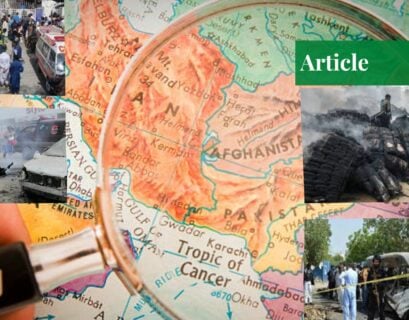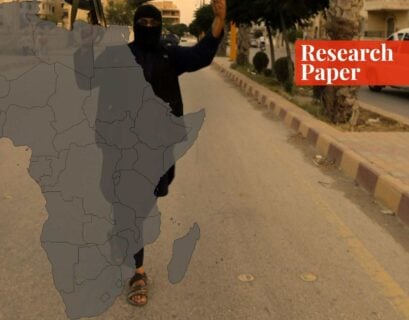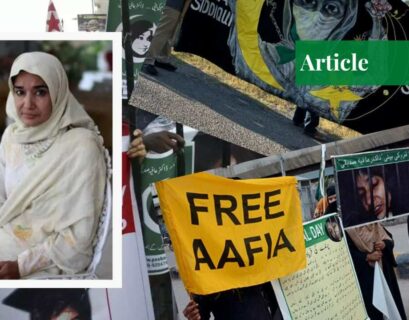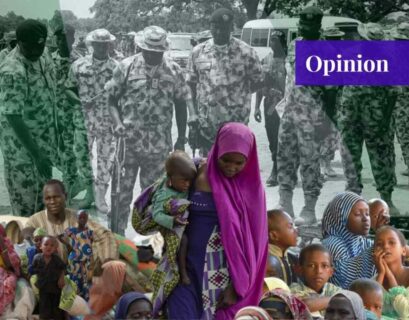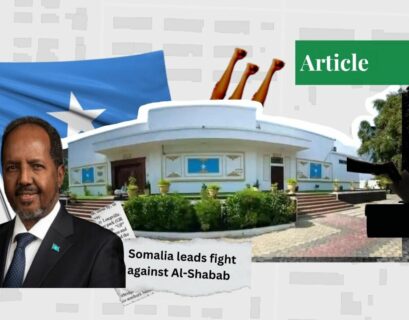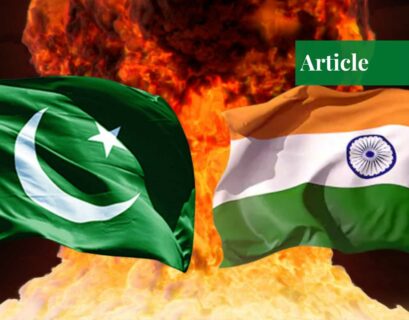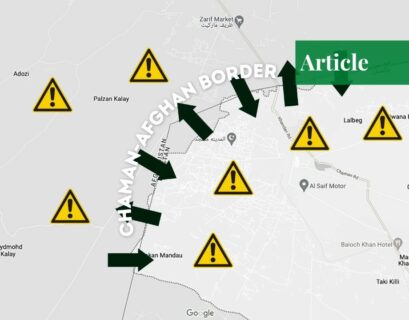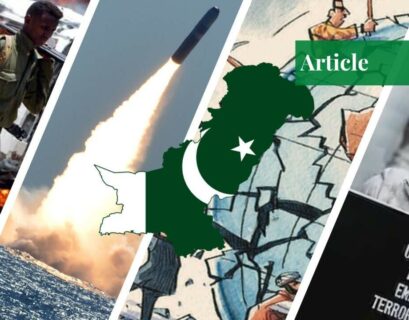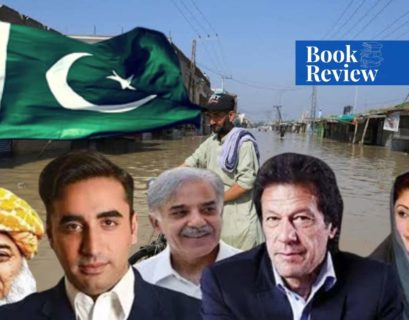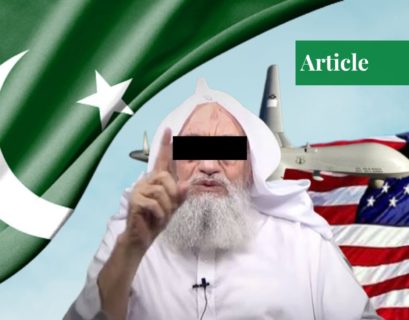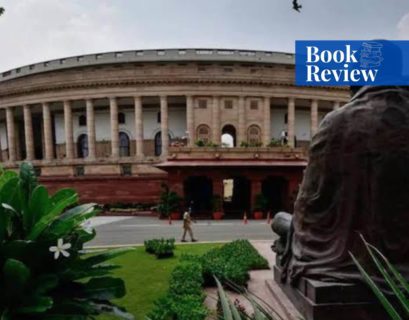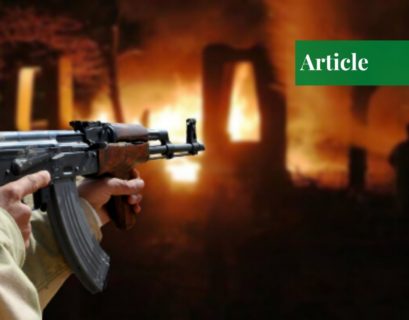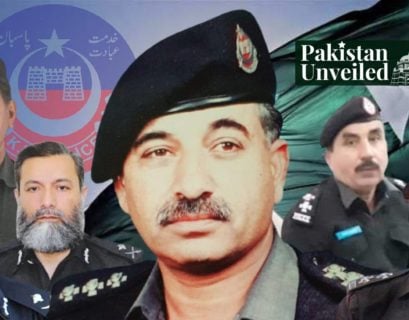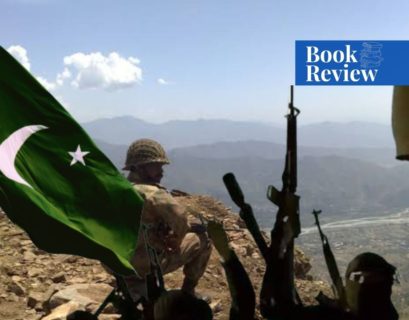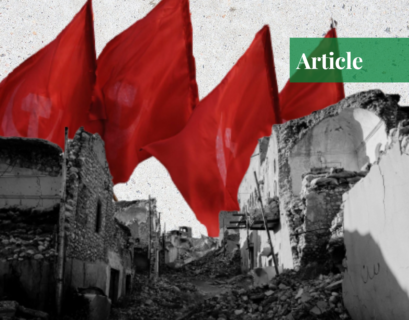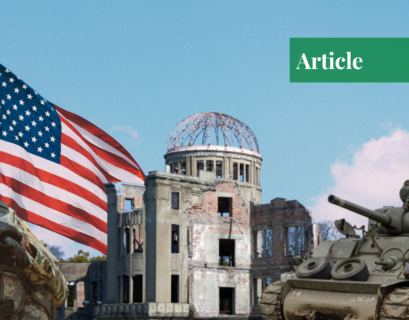Terror Attacks in Pakistan: Role of Afghanistan in Promoting Instability
Since the American withdrawal from Afghanistan in 2021, Pakistan has consistently voiced its concern regarding the neighboring country’s harboring of terrorists. The recent surge in terror attacks in Pakistan, Iran, and Russia has reignited this concern, prompting questions about American interests in fostering instability in the region.
The Islamic State’s Ingress in Africa: Implications for Regional and Global Security
There has been increasing evidence and concern regarding the presence of ISIS in Africa. While major powers and local authorities are actively countering the threat posed by the group in Africa, it is crucial to address the socio-political and economic deprivations that fuel the rebellion against the state. The group’s ambitions extend globally, as evident in an ambitious world map released by its leader, Baghdadi. Their strategy involves establishing their rule in different countries, employing local commanders known as “Amirs,” who are accountable to the self-proclaimed and widely regarded as illegitimate “Caliph.”
Narco-Terrorism: Exploring Hezbollah’s Drug Trafficking Rings
Hezbollah stands out as one of the most dangerous terrorist organizations, funded significantly by drug trafficking. The partnership between drug smuggling criminals and terrorists poses a growing threat to global security.
The interconnected nature of these challenges requires a united effort to address the complex issue of drug smuggling and its implications for international security.
Dr. Aafia Siddiqui: Guilty Until Proven Innocent
Who is Dr. Aafia Siddiqui? This article explores the life and troubles of the Pakistani scientist who has been at the center of a global controversy.
By all accounts, Dr. Siddiqui’s story is known to be of grave injustice and tragedy.
Nigerian Military vs Boko Haram: The Costs of Civilian Harm
Nufaisa Garba Ahmed primarily sets out to examine the nature and character of the protection of civilians in armed conflicts. In doing so, she brings to the fore some of the grave violations against the civilian population by the Nigerian military in the fight against the Boko Haram Terrorist Group (BHTG) in Nigeria’s Northeast, as reported by credible news outlets.
The aim of this opinion piece is to bring to light some of the salient issues of civilian protection and proffer some good practices and lessons to be adopted for more credible and transparent operations by the military in armed conflicts.
President Mohamud’s War Against Al-Shabaab
In May 2022, when President Sheikh Mohamud was elected president of Somalia amidst the political turmoil, one of his top priorities was the elimination of Al-Shabaab, an Islamist group that has been waging war against the country.
Adam Abass analyses the president’s strategy against Al-Shabaab, the current military offensive being launched by his government, Al-Shabaab’s counter-strategy, and the possible challenges ahead that can thwart the progress being made against the group.
Assessing Nuclear Security in Pakistan & India
In South Asia, Pakistan has been subjected to growing criticism over the insecurity posed by its nuclear infrastructure. However, what’s commonly ignored is that the region houses another nuclear state—one that presents greater and deadly nuclear concerns.
Pak-Afghan Clashes at the Chaman Border
The Taliban regime came into power by overtaking the Afghan government in August 2021. Despite the fact that Pakistan was one of the first countries to recognize the Taliban government, relations between Pakistan and Afghanistan have remained contentious since then.
Deadly cross-border exchanges at the Chaman border on 13th November, 11th December, and 15th December have alarmed the people of the two states who fear a dramatic escalation of the conflict.
Myths Around Pakistan’s Nukes & National Security
Brig Syed Mushtaq Ahmed (Retd) dispels four virulent myths that have been making the rounds. These include:
1. Balkanization of Pakistan
2. Pakistan is a failed state
3. Pakistan is an epicentre of terrorism
4. The threat to Pakistan’s nuclear arsenal.
He believes that the common objective is to debilitate and defang Pakistan—the only Muslim nuclear power that could threaten US, India, and Israel.
Pakistan: Beyond the ‘Crisis State’
Edited by Maleeha Lodhi and several other contributors, Pakistan: Beyond the ‘Crisis State’ was published in 2011. The book effectively embarks beyond terrorism and natural disasters. Instead, it addresses the country’s contemporary security dynamics, demographic pressures, energy shortages, and lack of political will.
The US Drone That Killed Ayman Al-Zawahiri: Was Pakistan Involved?
Since the death of Ayman al-Zawahiri in a US-authorized drone strike on July 31st, there has been speculation about Pakistan’s alleged participation in the attack. Hamra Tariq assesses the allegations which continue to persist regardless of Pakistan’s continuous denial of its involvement. She argues that, instead of Pakistan, there might be other actors entangled in Al-Zawahiri’s death.
The Silent Coup: A History of India’s Deep State
In “The Silent Coup: A History of India’s Deep State,” Josy Joseph explains India’s democratic erosion and the role of India’s security agencies, politicians, and media in this decline. Through the case of Wahid Ali, he demonstrates how the three are intricately linked in the world’s largest democracy.
The Critical Security Issues of Pakistan: Terrorism, Blasphemy & Sectarian Violence
Despite several years of relative calm and stability, the spectre of terrorism is rearing its head in Pakistan again. With dozens killed and several more wounded in just the past few months, many fear that Pakistan is going down a dark path back to its past, a past riddled with too many bullet holes. The Declaration of the United States’ War on Terror in the aftermath of the 9/11 bombings has resulted in untold carnage and death, most particularly in the countries of Iraq, Afghanistan, and Pakistan.
The KPK Police & Its Unsung Martyrs
For years, the Khyber Pakhtunkhwa (KPK) Police has remained the target of militant violence, targeted killings, suicide attacks, ambushes, and kidnappings by terrorist organizations like Tehreek-e-Taliban Pakistan (TTP). In the last two decades, more than 1,500 officers of the KPK Police have embraced martyrdom in the fight against terrorism in Pakistan. Among these martyrs are AIG Safwat Ghayur, SP Tahir Dawar, DIG Malik Saad, DSP Farid Hussain Bangash, and AIG Muhammad Ashraf Noor. Knowing the risks and challenges involved in this battle, the unsung heroes of the KPK Police have valiantly served their nation and sacrificed their lives.
A Book Review of Pakistan Under Siege
Madiha Afzal’s “Pakistan under Siege” explores extremism, terrorism, and the narratives of the state in Pakistan. She notes how religious radicalism has strongly influenced the political actors in the country. The author also offers an incisive view of the actors’ deep-rooted relationships with terrorism.
The Four Waves of Modern Terrorism
While state-perpetrated terrorism can be traced back to the Reign of Terror during the French Revolution, terrorism itself is rooted deep into human history. The author notes that the phenomenon of terrorism has undergone significant development since its usage by the Sicarii in the 1st century. The author relies on David Rapoport’s model of the four waves of modern terrorism to explain how the aims, motivation, rationale, and methods of achieving the aims have changed from the 1870s till now. She argues that while states have adopted measures to counter the current wave of religious fundamentalism, terrorism itself cannot be completely eradicated.
The United States of America: The Superpower of War Crimes, Terrorism, & Hypocrisy
When it comes to human rights and democracy, the United States of America tends to place itself on a high pedestal. The US’ false sense of righteousness and its tendency to ignore its own crimes while calling out other states has allowed it to remain on its high horse. The author, Sarmad Ishfaq, notes that the US has actively supported insurgencies and covert regime changes, initiated a nuclear arms race, and killed 22,000 civilians in airstrikes. No incident can better represent the US’ war crimes and hypocrisy than its bombing of Hiroshima and Nagasaki. Yet, despite it killing hundreds of thousands of people, the world turns a blind eye to America’s transgressions.
